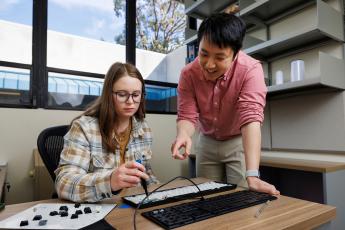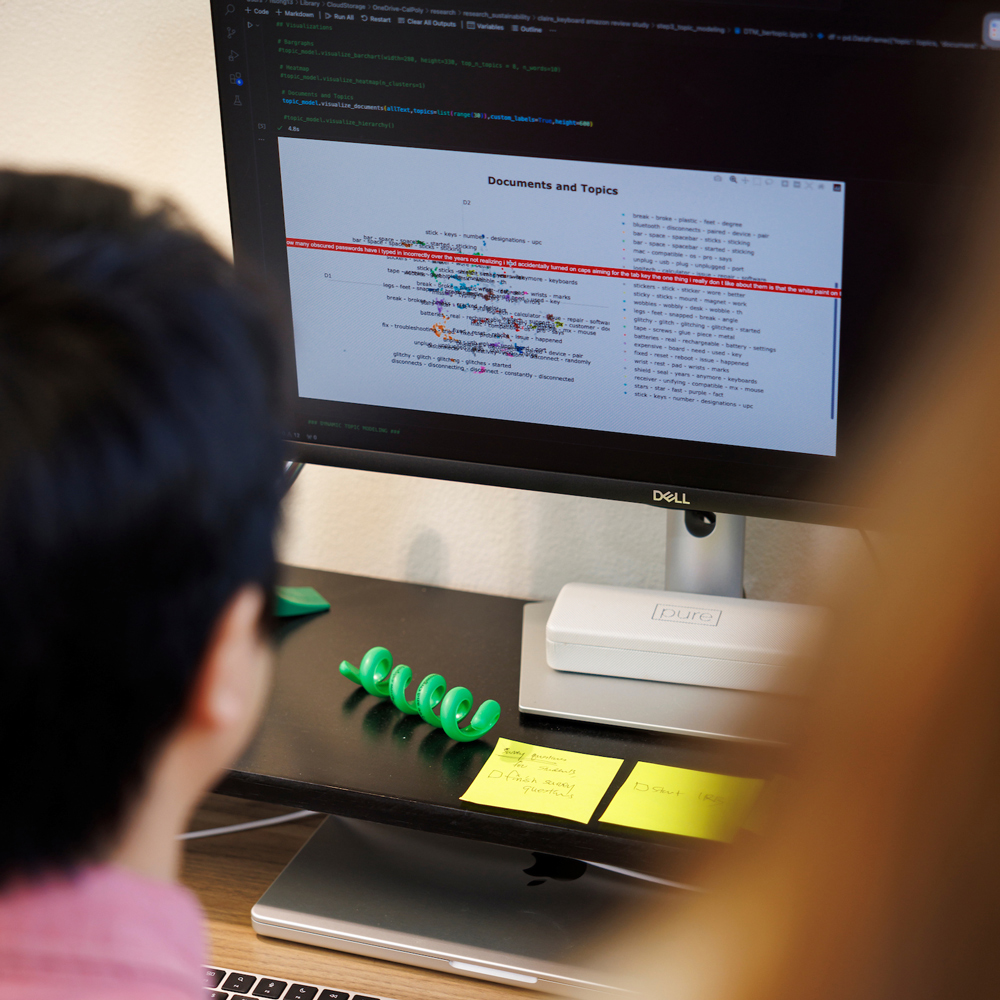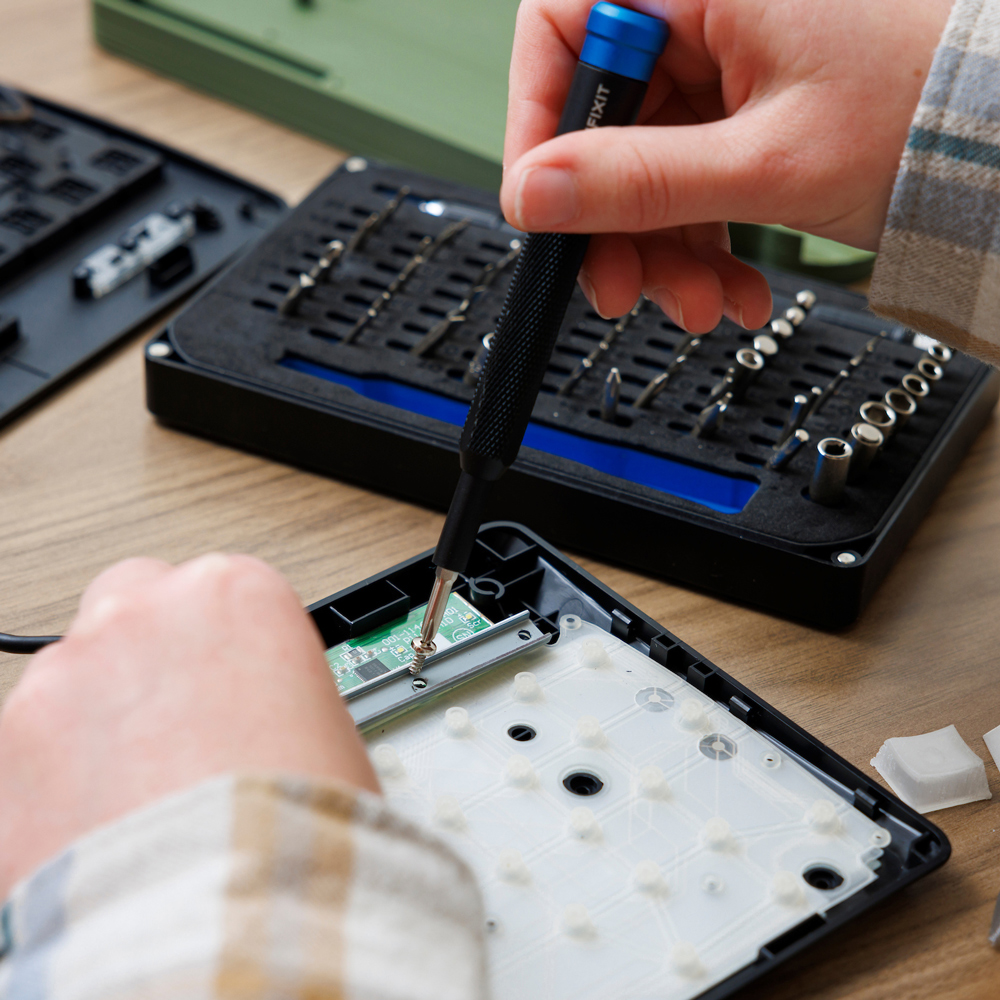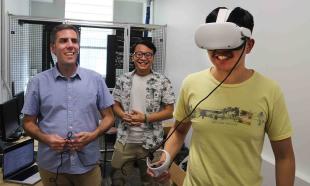Engineers Embrace Repair Culture as New Law Takes Shape in California

Last fall, California passed SB 244, otherwise known as the Right to Repair law, which requires tech manufacturers in the state to provide tools, parts and documents that consumers or repair shops need to service or fix devices.
Though the legislation doesn't go into effect until July, Cal Poly engineers have already embraced repairability to help cut down on e-waste and improve sustainability.
Mechanical engineering student Claire Franz is studying why consumers dispose of membrane computer keyboards instead of repairing them. Franz, who is earning her bachelor's and master's degrees concurrently, felt inspired to tackle this concept in her master’s thesis after an internship with iFixit, a repair expertise hub for consumer electronics founded by Cal Poly alumni.

Franz and professor Hyeonik Song identified the most common user complaints by using natural language processing to analyze 5,000 Amazon reviews across 10 common brands.
Then Franz took the most common complaints — like dead or sticking keys — and developed physical solutions using 3-D printed components. The goal of the project was to shift the design thinking framework from prioritizing efficient manufacturing to prioritizing repairability.
“Design for manufacturing aims to optimize product designs for efficient and cost-effective manufacturing processes, so it has more direct impact on designers, engineers and manufacturers,” Song said. “Design for repairability prioritizes the durability and reusability of a product, which directly impacts the users and the environment.”
When Franz first brought the idea to Song, he was intrigued — previously, his research focused on product performance and quality. He also hadn’t examined whether consumer opinions could be incorporated in the early design phase before.
“Now, my research question is, ‘How can we help designers be more creative while focusing on sustainability early in the process?’” said Song. “It was a life-changing moment to meet a student like Claire.”

The team has coauthored a conference paper on the study that they will present at the International Design Engineering Technical Conference in Washington, D.C., in August.
But Franz and Song aren't the only engineers working toward sustainability. The Repair Café, founded by mechanical engineering student Quinn Horak, is a student club that invites community members to bring broken appliances, bikes and other items to regular events on campus for a free fix. The goal is to reduce unnecessary waste and sharpen repair skills for club members while helping the community.
“Consumers should not be beholden to companies for the privilege of fixing goods they’ve already paid for,” said Horak. “The environmental benefits of reusing and repairing items are also significant. Every time we repair instead of replace, we eliminate all emissions associated with producing and shipping a new product to consumers.”
The Repair Café has partnered with the Cal Poly Amateur Radio Club to host three events in 2024, with more on the way. Horak says he’s excited about the potential for California’s new law to drive down the cost of repairing versus buying new.
“By allowing individuals and independent repair shops access to the same documentation and parts as their corporate counterparts, a more robust and competitive service economy is formed,” he said. “Besides creating jobs and reducing repair costs, this also makes repair a more compelling alternative to replacement.”
California isn't the only state with a Right to Repair law on the books — other states have recently enacted similar laws — but Song says California’s repair culture could be a tipping point for the industry.
“California currently houses major consumer electronics companies and therefore holds a crucial role in this context,” said Song. “As these companies actively embrace the repair movement, other companies worldwide could be motivated to follow the trend.”
Want more Learn by Doing stories in your life? Sign up for our monthly newsletter, the Cal Poly News Recap!




